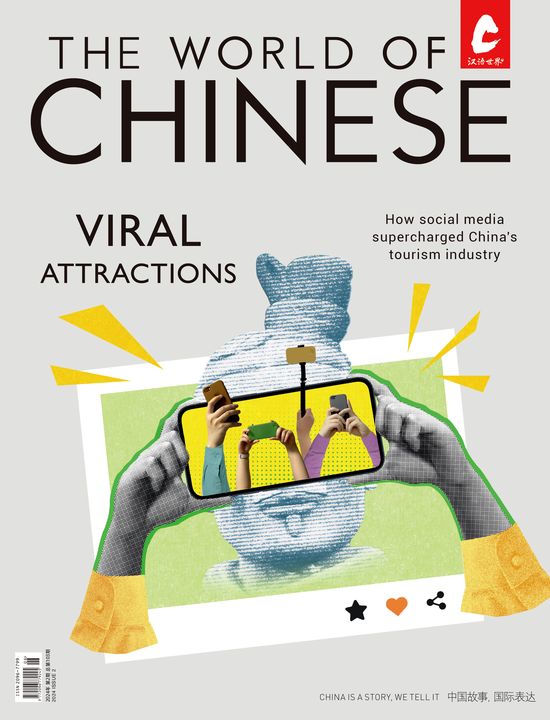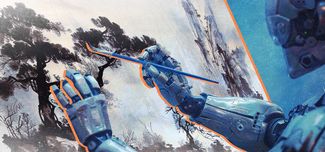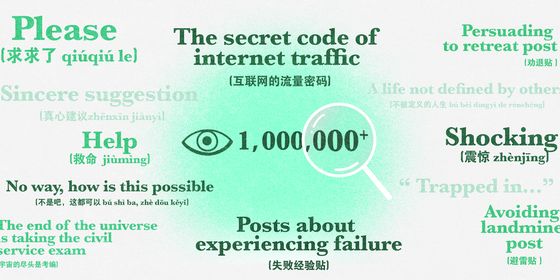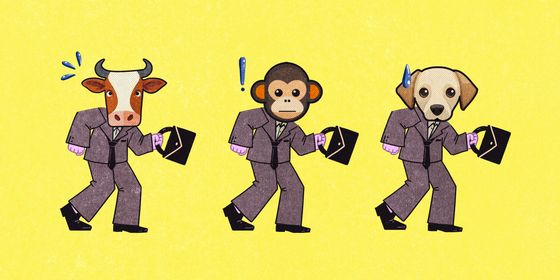TWOC’s picks for top phrases and memes that took over the Chinese internet this year
This year has been one of scandal and uproar on Chinese social media, as dozens of celebrities have fallen from grace one after another, while fan groups have been restricted, and tech companies were fined record amounts for breaching antitrust and privacy regulations. Through it all, netizens have continued to develop their own slang in response to societal trends, with apathy and humor taking center stage for China’s online youth.
The viral catchphrases of 2021 provide a glimpse of societal trends that have captured people’s imaginations over the past 12 months: pressures from a ultra-competitive education and job markets, anxiety around social interactions, and obsession with celebrities. Netizens have moaned about an “involuted” and “uneven” society, but participated in it by “chickening” the next generation, while slipping into feeling “emo” and then “lying flat” to complain about it all.
With the year nearly over, here are TWOC’s top internet slang terms of 2021:
Involution (内卷 nèijuǎn) and lying flat (躺平 tǎngpíng)
“Involution (内卷 nèijuǎn)” became a viral phrase in 2020 to describe endless pressure on young people in school and work. This happened after a photo went viral on social media, showing a student from the prestigious Tsinghua University in Beijing riding his bicycle at night with his laptop propped up on the handlebars.
Literally meaning “rolling inward,” 内卷 was originally the Chinese translation of an academic term for an overdeveloped agrarian society, but is now used by Chinese youths who feel trapped in endless competition with themselves and others, bogged down in excessive pressure in education, work, and relationships.
The term was still broadly discussed in 2021, and spawned many varieties this year, such as: “cabbage (卷心菜 juǎnxīncài),” referring to a person who is forced to compete but is “average (菜 cài)” or weak; and “the king of sushi (寿司之神 shòusī zhī shén),” which refers to someone who is constantly “rolling” themselves (self-criticizing). “I am the king of involution, the king of sushi! No one can be more involuted than me (我就是内卷的神,我就是寿司之神,没人能卷的过我 Wǒ jiùshì nèijuǎn de shén, wǒ jiùshì shòusī zhī shén, méi rén néng juǎn de guò wǒ)!” these self-mocking pessimists say when someone challenges their status as the most overburdened and downtrodden.
Tired of relentless competition, or “卷不动了 (juǎn bú dòng le),” overburdened millennial white-collar workers came up with another catchphrase that is the symbolic opposite to “involution” in 2021: “lying flat (躺平 tǎngpíng).” Proponents of this attitude, called the “lying flat party (躺平族 tǎngpíngzú),” are apathetic and desperate to escape involuted lifestyles, and apply a principle of “no action, no resistance, no endeavor (不作为,不反抗,不努力 bú zuòwéi, bù fǎnkàng, bù nǔlì)” to confront meaningless competition.
Though the term encountered disapproval from some state media because of its perceived negative attitude, it was still widely discussed and used online. Netizens now often complain that modern life has left them with “no waves in my heart; I just want to lie down (内心毫无波澜,只想躺平 nèixīn háo wú bōlán, zhǐ xiǎng tǎngpíng),” even if just for a while.
Chicken kids (鸡娃 jīwá)
Competition has been a theme for much of online slang this year. In education, “chicken children” are (usually) very young kids tutored relentlessly by their parents, who are anxious that their offspring succeed in China’s hyper-competitive education system. These parents pile countless hours of cram classes, extracurricular activities, and various learning strategies on their offspring.
The process of “chickening” one’s children has come in for criticism, and the pressure children face in education is part of the motivation behind recent government reforms to the amount of homework and after-school tutoring faced by students, as part of policies known as “double reduction (双减 shuāng jiǎn).”
The unevenness of the world (世界的参差 shìjiè de cēncī)
Inequalities and perceived unfairness have also been themes in internet-speak this year. One catchphrase, “the unevenness of the world (世界的参差 shìjiè de cēncī),” emerged from the popular reality TV show Produce Camp 2021 and is used as an elegant way to lament the inequality of the world, or provide a convenient excuse for one’s own deficiencies.
The word 参差 (cēncī), which means uneven or irregular, is formal and rarely used in spoken language, so the term has become a widely used joke to refer to one’s own shortcomings.













